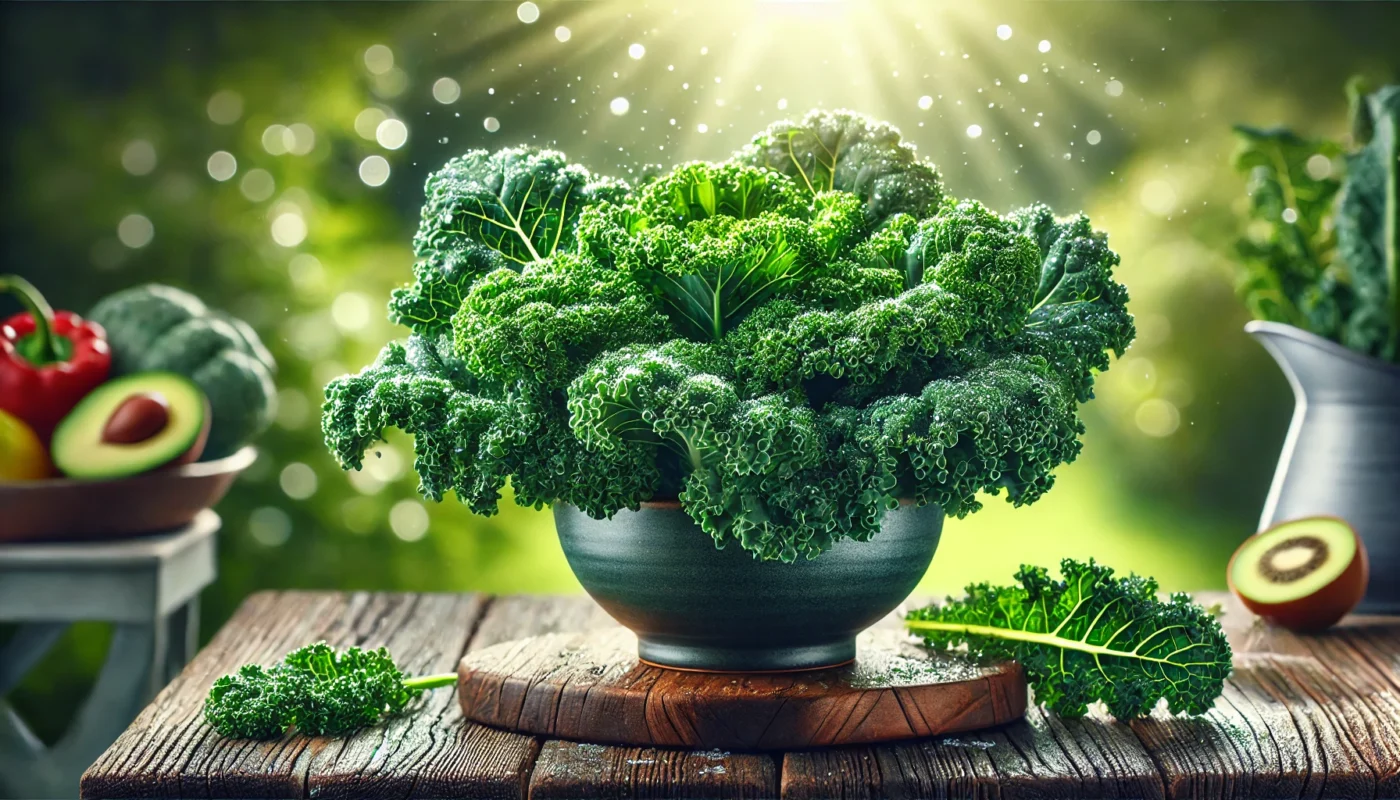In the quest for optimal health and wellness, incorporating superfoods into your diet is a strategy worth considering. Superfood vegetables, often hailed for their exceptional nutrient density and health benefits, offer a range of advantages that can support everything from heart health to cancer prevention. In this article, we delve into the top 10 superfood veggies that can make a significant impact on your health journey.
You May Also Like: Understanding the Anti-Inflammatory Elimination Diet
What Are Superfood Veggies?
Superfood vegetables are those that are exceptionally rich in vitamins, minerals, antioxidants, and phytochemicals. These compounds are integral to maintaining good health, preventing disease, and enhancing overall well-being. Unlike regular vegetables, superfood veggies pack a potent punch of nutrients in every serving, making them an ideal choice for anyone looking to boost their nutritional intake.
Nutrient Density
The term “nutrient density” refers to the ratio of nutrients to calories in a food. Superfood vegetables excel in this aspect because they offer a high concentration of essential nutrients while being relatively low in calories. This makes them excellent choices for those aiming to maximize their nutrient intake without consuming excessive calories, thus aiding in weight management and overall health.
Antioxidants and Phytochemicals
Antioxidants are compounds that protect your body from oxidative stress, a process that can lead to cellular damage and contribute to aging and diseases. Superfood veggies are abundant in antioxidants like flavonoids and carotenoids. Phytochemicals, on the other hand, are natural compounds found in plants that provide health benefits beyond basic nutrition, such as anti-inflammatory and anti-cancer properties.
Health Benefits
Incorporating superfood vegetables into your diet can offer numerous health benefits. They can help reduce the risk of chronic diseases, support heart health, enhance digestive health, and boost immune function. Their high fiber content aids in maintaining a healthy digestive system, while vitamins and minerals support various bodily functions.

The Top 10 Superfood Vegetables
1. Kale
Kale tops the list of superfood veggies due to its impressive nutritional profile. It’s loaded with vitamins A, C, and K, as well as calcium, potassium, and iron. Kale is also a powerhouse of antioxidants, which help combat oxidative stress and inflammation. Incorporate kale into your diet by adding it to smoothies, salads, or as a sautéed side dish.
Nutritional Powerhouse
Kale is often referred to as a “nutritional powerhouse” because of its high content of essential vitamins and minerals. It provides more vitamin C than an orange and more calcium than a glass of milk, making it an excellent choice for bone health and immune support. Its rich iron content also makes it an ideal vegetable for those who need to boost their iron levels.
Versatile in Cooking
The versatility of kale in cooking is unmatched. Whether you prefer it raw in salads, blended in smoothies, or sautéed as a side dish, kale can be incorporated into various meals. For those new to kale, trying it in a smoothie with fruits like banana and mango can be a great introduction to its taste and texture.
Health Benefits
Regular consumption of kale is linked to numerous health benefits. Its high antioxidant content can reduce inflammation and support heart health. Additionally, the fiber in kale aids digestion, while its vitamin K content supports healthy blood clotting and bone health.
2. Spinach
Spinach is another leafy green that boasts an array of health benefits. Rich in iron, magnesium, and folate, spinach supports cardiovascular health and maintains energy levels. Its high content of lutein and zeaxanthin also promotes healthy vision. Spinach is versatile and can be used in everything from omelets to pasta dishes.
Nutrient Profile
Spinach is an excellent source of essential nutrients, including iron, which is vital for transporting oxygen in the blood. Magnesium found in spinach helps regulate muscle and nerve function, while folate is crucial for DNA synthesis and repair. These nutrients make spinach a great addition to a balanced diet.
Culinary Uses
The mild flavor and tender texture of spinach make it a popular choice in a variety of dishes. It can be enjoyed fresh in salads, blended into smoothies, or cooked in soups and stews. Spinach’s versatility allows it to be easily incorporated into breakfast, lunch, or dinner.
Health Benefits
The health benefits of spinach are extensive. Its high iron content supports energy levels and combats fatigue. The antioxidants lutein and zeaxanthin found in spinach are known to protect eye health, reducing the risk of age-related macular degeneration and cataracts.
3. Broccoli
Broccoli is a cruciferous vegetable renowned for its cancer-fighting properties. It contains sulforaphane, a compound that has been shown to reduce the risk of various types of cancer. Broccoli is also a great source of fiber, vitamin C, and potassium. Enjoy it steamed, roasted, or raw in salads.
Cancer-Fighting Properties
Broccoli is well-known for its cancer-fighting properties due to the presence of sulforaphane, a compound that promotes the elimination of potential carcinogens and inhibits the growth of cancer cells. Regular consumption of broccoli has been linked to a reduced risk of several types of cancer, including breast, prostate, and colorectal cancer.
Nutritional Benefits
In addition to its cancer-fighting properties, broccoli is packed with essential nutrients. It provides a significant amount of fiber, which aids digestion and promotes a feeling of fullness. The vitamin C content in broccoli supports immune function and enhances skin health.
Culinary Versatility
Broccoli can be prepared in numerous ways to suit different taste preferences. It can be enjoyed raw in salads, steamed as a side dish, or roasted with herbs and spices for a flavorful addition to any meal. Its versatility makes it easy to include in a healthy diet.

4. Brussels Sprouts
Brussels sprouts are small but mighty when it comes to nutritional value. They are rich in vitamins C and K, folate, and manganese. Like other cruciferous vegetables, Brussels sprouts contain compounds that may help protect against cancer. Roast them with a drizzle of olive oil for a delicious side.
Nutrient-Dense
Brussels sprouts are nutrient-dense, providing a substantial amount of vitamins and minerals in a small serving. They are particularly rich in vitamin K, which is essential for blood clotting and bone health, and vitamin C, which supports immune function and skin health.
Cancer Protection
Similar to other cruciferous vegetables, Brussels sprouts contain compounds like glucosinolates and isothiocyanates that have been studied for their cancer-protective properties. These compounds may help detoxify the body and reduce the risk of certain cancers by inhibiting the growth of cancer cells.
Cooking Tips
To enhance the natural flavors of Brussels sprouts, try roasting them with a bit of olive oil and seasoning. This method caramelizes the sprouts, bringing out their sweetness and making them a delicious addition to any meal. They can also be sautéed or steamed for a quick and nutritious side dish.
5. Sweet Potatoes
Sweet potatoes are not only delicious but also packed with nutrients. They are high in beta-carotene, which the body converts to vitamin A, essential for vision and immune function. Sweet potatoes also offer fiber, vitamins C and B6, and manganese. Bake them, mash them, or add them to soups for a sweet and nutritious addition.
Rich in Beta-Carotene
Sweet potatoes are an excellent source of beta-carotene, an antioxidant that the body converts into vitamin A. This nutrient is crucial for maintaining healthy vision, supporting immune function, and promoting skin health. Consuming sweet potatoes regularly can help ensure adequate vitamin A intake.
Versatile Preparation
Sweet potatoes can be prepared in various ways to suit different tastes and dietary preferences. They can be baked, mashed, roasted, or added to soups and stews. Their natural sweetness makes them a popular choice for both savory and sweet dishes, offering endless culinary possibilities.
Health Benefits
In addition to being rich in beta-carotene, sweet potatoes provide dietary fiber, which aids digestion and promotes a feeling of fullness. They also contain vitamins C and B6, which support immune function and brain health, respectively. Including sweet potatoes in your diet can contribute to overall health and well-being.
6. Bell Peppers
Bell peppers are an excellent source of vitamins A and C, which are important for immune support and skin health. They also contain antioxidants like beta-carotene and lutein. Bell peppers add a sweet crunch to salads, stir-fries, and fajitas.
Nutritional Content
Bell peppers are packed with essential nutrients, particularly vitamins A and C. These vitamins are crucial for maintaining a healthy immune system, promoting skin health, and supporting vision. The vibrant colors of bell peppers are indicative of their rich antioxidant content, which provides additional health benefits.
Culinary Flexibility
The crisp texture and sweet flavor of bell peppers make them a versatile addition to a variety of dishes. They can be enjoyed raw in salads, sautéed in stir-fries, or stuffed with grains and vegetables for a nutritious meal. Their versatility and vibrant colors make them a favorite in many cuisines.
Health Advantages
Regular consumption of bell peppers can contribute to improved health outcomes. The high vitamin C content supports immune function and aids in collagen production, promoting healthy skin. Additionally, the antioxidants in bell peppers help protect cells from oxidative damage, reducing the risk of chronic diseases.

7. Carrots
Carrots are renowned for their high beta-carotene content, promoting good vision and skin health. They also provide fiber, vitamin K, and potassium. Carrots are versatile and can be eaten raw, steamed, or roasted.
Beta-Carotene Benefits
Carrots are best known for their high beta-carotene content, which the body converts into vitamin A. This nutrient is essential for maintaining good vision, particularly in low-light conditions, and supporting skin health. Including carrots in your diet can help ensure adequate vitamin A intake.
Versatile in the Kitchen
Carrots are incredibly versatile and can be incorporated into a wide range of dishes. They can be eaten raw as a crunchy snack, added to salads, or cooked in soups and stews. Roasting carrots brings out their natural sweetness, making them a delicious and nutritious side dish.
Health Benefits
In addition to supporting vision and skin health, carrots provide dietary fiber, which aids digestion and promotes a feeling of fullness. They also contain vitamin K, which supports bone health, and potassium, which helps regulate blood pressure. Regular consumption of carrots can contribute to overall health and wellness.
8. Garlic
Garlic is more than just a flavor booster; it’s a superfood with potent medicinal properties. It contains allicin, a compound with antimicrobial and anti-inflammatory effects. Regular consumption of garlic may support heart health and immune function. Add it to sauces, soups, and marinades for added flavor and health benefits.
Medicinal Properties
Garlic is renowned for its medicinal properties, largely attributed to the compound allicin. Allicin has been studied for its antimicrobial, anti-inflammatory, and antioxidant effects, making garlic a valuable addition to a health-promoting diet. These properties can help support immune function and reduce the risk of infections.
Culinary Uses
Garlic’s bold flavor enhances a wide range of dishes, making it a staple in many cuisines. It can be used fresh, roasted, or powdered to add depth and flavor to sauces, soups, marinades, and more. Incorporating garlic into your meals not only enhances taste but also provides health benefits.
Health Advantages
Regular consumption of garlic has been linked to numerous health benefits, including improved heart health and reduced risk of chronic diseases. Garlic can help lower cholesterol levels, reduce blood pressure, and support immune function, making it a valuable addition to a balanced diet.
9. Beets
Beets are rich in nitrates, which can improve blood flow and lower blood pressure. They also contain betalains, pigments with antioxidant and anti-inflammatory properties. Beets can be roasted, juiced, or added to salads for a nutritional boost.
Nitrate Content
Beets are an excellent source of nitrates, compounds that have been shown to improve blood flow and lower blood pressure. These effects can enhance cardiovascular health and support physical performance, making beets a popular choice among athletes and those looking to support heart health.
Antioxidant Properties
The vibrant red color of beets is due to betalains, pigments with powerful antioxidant and anti-inflammatory properties. These compounds can help protect cells from oxidative damage, reduce inflammation, and support overall health. Including beets in your diet can contribute to improved well-being.
Culinary Versatility
Beets can be prepared in a variety of ways, making them a versatile addition to your diet. They can be roasted for a sweet and earthy flavor, juiced for a nutrient-rich drink, or added to salads for color and nutrition. Their unique taste and nutritional benefits make them a valuable addition to any meal plan.
10. Asparagus
Asparagus is a spring vegetable that offers a wealth of nutrients, including fiber, folate, and vitamins A, C, and K. It also contains antioxidants like glutathione, which can protect cells from damage. Enjoy asparagus grilled, steamed, or roasted as a tasty side dish.
Nutrient-Rich
Asparagus is a nutrient-rich vegetable that provides a wide range of vitamins and minerals. It is particularly high in folate, which is essential for DNA synthesis and repair, and vitamins A, C, and K, which support immune function, skin health, and bone health. Including asparagus in your diet can help ensure adequate intake of these essential nutrients.
Antioxidant Benefits
Asparagus contains antioxidants like glutathione, which helps protect cells from oxidative damage and supports overall health. These antioxidants can help reduce inflammation, support detoxification processes, and promote healthy aging. Regular consumption of asparagus can contribute to improved well-being.
Cooking Suggestions
Asparagus is a versatile vegetable that can be prepared in numerous ways. It can be grilled for a smoky flavor, steamed for a tender texture, or roasted for a caramelized taste. Asparagus can be enjoyed as a side dish or added to salads, pasta dishes, and more for a nutritious boost.

How to Incorporate Superfood Veggies into Your Diet
Incorporating these superfood vegetables into your diet doesn’t have to be complicated. Here are some tips to get you started:
Mix and Match
Combine several superfood veggies in a salad or stir-fry for a nutrient-dense meal. Mixing different vegetables not only adds variety to your diet but also ensures a wide range of nutrients. For example, try a salad with kale, spinach, and bell peppers, or a stir-fry with broccoli, carrots, and asparagus.
Smoothie Boost
Add leafy greens like kale or spinach to your morning smoothie for an extra kick of nutrients. Blending these greens with fruits like bananas, berries, and mango can create a delicious and nutrient-rich drink. Smoothies are a convenient way to increase your intake of superfood veggies and start your day on a healthy note.
Roast Away
Roasting vegetables like broccoli, Brussels sprouts, and sweet potatoes enhances their flavor and makes for an easy side dish. The caramelization that occurs during roasting brings out the natural sweetness of the vegetables, making them more palatable. Roasted veggies can be enjoyed on their own or added to salads, grain bowls, and more.
Soup It Up
Make soups and stews more nutritious by adding a variety of superfood vegetables. Vegetables like carrots, garlic, and beets can enhance the flavor and nutrient content of your soups. Soups are an excellent way to enjoy a warm and comforting meal while incorporating a diverse range of vegetables into your diet.
Snack Smart
Keep sliced carrots, bell peppers, and cucumbers in the fridge for a quick and healthy snack. Having these vegetables readily available makes it easier to choose nutritious snacks over less healthy options. Pair them with hummus or a yogurt dip for added flavor and nutrition.
The Science Behind Superfood Veggies
Research continues to uncover the numerous health benefits of superfood vegetables. Studies show that a diet rich in these veggies can reduce the risk of chronic diseases such as heart disease, diabetes, and certain cancers. The antioxidants found in superfood vegetables can also slow the aging process and improve overall health and longevity.
Disease Prevention
Superfood vegetables are linked to a reduced risk of chronic diseases due to their high content of vitamins, minerals, and antioxidants. The compounds in these veggies can help lower blood pressure, improve blood sugar control, and reduce inflammation, all of which contribute to better health outcomes.
Antioxidant Effects
The antioxidants present in superfood vegetables play a crucial role in protecting cells from oxidative damage. This protection can help prevent the onset of chronic diseases and support healthy aging. Antioxidants also contribute to improved skin health, enhanced immune function, and reduced inflammation.
Longevity and Well-Being
Consuming a diet rich in superfood vegetables is associated with increased longevity and improved overall well-being. The nutrients and compounds in these veggies support various bodily functions, promoting optimal health and vitality. Including superfood vegetables in your diet can contribute to a longer, healthier life.

Conclusion
Incorporating superfood vegetables into your diet is a powerful step toward improving your health and well-being. These nutrient-rich veggies offer a wide range of benefits, from boosting immunity to protecting against chronic diseases. By making these superfoods a regular part of your meals, you can enjoy their delicious flavors while reaping the health rewards they provide.
Remember, a balanced diet with a variety of fruits, vegetables, and other whole foods is key to optimal health. So, start experimenting with these superfood veggies today and discover the positive impact they can have on your life.
Embrace Variety
To maximize the health benefits of superfood vegetables, aim to include a variety of them in your diet. Each vegetable offers unique nutrients and compounds, contributing to a well-rounded and nutritious diet. Embrace the diversity of superfood veggies and enjoy the different flavors and textures they bring to your meals.
Experiment with Recipes
Don’t be afraid to experiment with recipes and cooking methods to find new ways to enjoy superfood vegetables. Whether you’re trying a new salad, soup, or stir-fry, incorporating these veggies into your meals can be both enjoyable and beneficial for your health. Exploring different cuisines can also introduce you to new and exciting ways to include superfood vegetables in your diet.
Commit to a Healthier Lifestyle
Incorporating superfood vegetables into your diet is just one aspect of a healthy lifestyle. Pairing these nutrient-rich foods with regular physical activity, adequate hydration, and stress management can further enhance your well-being. By committing to a healthier lifestyle, you can improve your quality of life and achieve long-term health benefits.
Further Reading:
15 Superfoods and the Scientific Reasons to Eat Them
Superfoods: Why you should eat cruciferous vegetables
How superfoods work (plus a list of the best superfoods)
beets, asparagus, superfood vegetables, nutrition, antioxidants, heart health, dietary tips, healthy eating, vegetable recipes, wellness, disease prevention, cooking methods, meal planning, healthy lifestyle
Important Note: The information contained in this article is for general informational purposes only, and should not be construed as health or medical advice, nor is it intended to diagnose, prevent, treat, or cure any disease or health condition. Before embarking on any diet, fitness regimen, or program of nutritional supplementation, it is advisable to consult your healthcare professional in order to determine its safety and probable efficacy in terms of your individual state of health.
Regarding Nutritional Supplements Or Other Non-Prescription Health Products: If any nutritional supplements or other non-prescription health products are mentioned in the foregoing article, any claims or statements made about them have not been evaluated by the U.S. Food and Drug Administration, and such nutritional supplements or other health products are not intended to diagnose, treat, cure, or prevent any disease.

